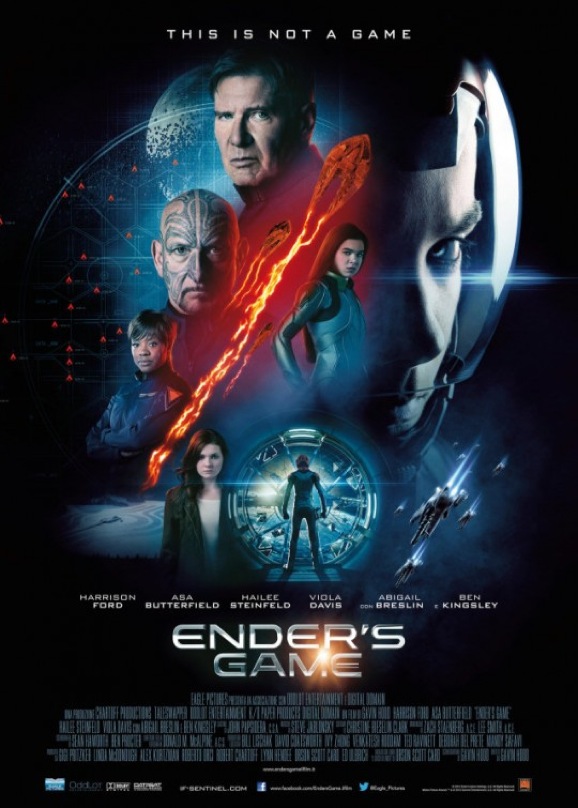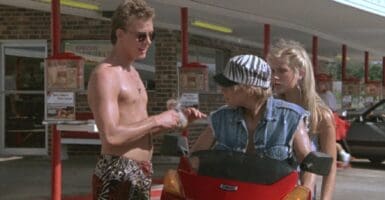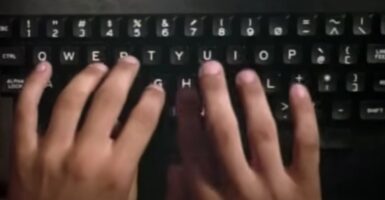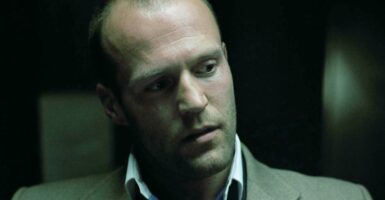Ender’s Game’s Latest TV Spot Chooses A Hero
This article is more than 2 years old
On November 1, Gavin Hood (X-Men Origins: Wolverine) and Summit Entertainment will bring a touch of the summer blockbuster to your end of the year holiday season with their adaptation of Orson Scott Card’s sci-fi novel Ender’s Game. We’re talking about a big, tentpole style movie here, one with an A-list cast and a ton of pricey special effects, so the studio is sparing no expense when it comes to marketing. You can bet they’re also trying to combat the firestorm of negative publicity surrounding Card’s unfortunate anti-gay stance. We’re seeing posters, clips, and especially TV spots, like this latest, with increasing regularity.
This new video doesn’t reveal much that you didn’t get from the last one. The biggest thing this commercial does is set the protagonist, Andrew “Ender” Wiggin (Asa Butterfield), up as messianic figure, which isn’t a lot of pressure to put on a kid or anything like that. Just imagine if the film stuck to the story of the book, placing Ender in this position as a six-year-old kid instead of a hormonally charged adolescent. That’s an even more insane amount of strain.
Like its predecessor, this ad highlights the changes the production made in translating Card’s novel to the silver screen. As a general rule, I’m fine with making changes when adapting a book into a film. These are two distinct mediums after all, each with a different set of things they need to adequately tell their story. My caveat is that I don’t mind changes, so long as the reworking stays true to the spirit of the original. Granted, this is a vague stance—what one reader sees as an integral part of a story, another will dismiss completely—but one that has served me fairly well in the past. That said, I have some definite concerns about how some of these changes will impact the story and characters of Ender’s Game.
First off, changing his age so drastically creates a whole new dynamic between Ender, his classmates, and his instructors at Battle School, the orbiting military academy where he trains. Part of why the novel works so well is because of the callous disregard the adults have for such young children, pitting them against one another in feats of strength, cunning, and ultimately violence. These themes are still applicable, but by making the characters teens, you get the impression that Battle School is going to mirror traditional high school or junior high environments as portrayed in every teen drama ever made. The still of Ender standing alone in the middle of the cafeteria, holding his tray, trying to figure out where to sit, illustrates this point. I also fear they’re going to force a romantic angle between Ender and Petra (Hailee Steinfeld).
You also get the film is taking what is essentially a coming of age story, the tale of a boy trying to find out where he fits in this world, and turning it into an empty action extravaganza. Don’t get me wrong, I love a good sci-fi actioner where aliens and lasers zip by your head every few seconds, but given the emotional depth of the source material, this is a terrible waste. Ender is too good a character to become just another underdog hero battling against extreme odds.
In the novel he doesn’t even realize that he’s fighting, he thinks he’s preparing for a war to come in the future. That reveal is the cherry on top of the sundae of being lied to and manipulated by every authority figure. Finding out that he has been sending real ships, real people, to their ultimate doom and destruction is a huge moment for Ender and the audience. It’s not going to be anywhere near as affecting if he simply saves the day, wins the begrudging respect of his peers and commanders, and gets carried away on the shoulders of a jubilant crowd. Again, that’s a fine movie, but it isn’t Ender’s Game.













